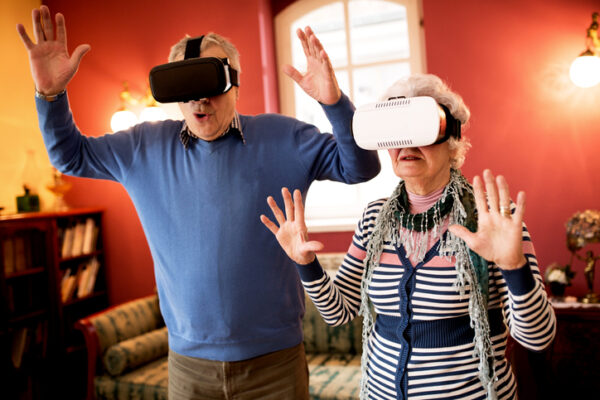These days, many of us wonder if the latest technology will have a headphone jack. Or maybe we obsess over if it will be thinner than its predecessor. However, technological advances can provide much more important experiences than just sending a text message or streaming the latest content. Specifically, virtual reality can improve end of life care immensely. It can essentially transport patients with a variety of physical and mental limitations to places they find comforting and familiar. In the United Kingdom, a local charity hospice called Loros is helping terminally ill patients do this through virtual reality (VR). And the results are amazing.
When someone is nearing the end of their life, it’s very likely they will end up going to a hospice or treatment center for end of life care. This transition can be extremely challenging for someone in this fragile condition. Luckily, Loros hospice care in the United Kingdom cares for over 2,500 terminally ill individuals in the area. And they are utilizing VR in their methods of care, according to this article from ZDnet.
Contrary to popular belief, virtual reality isn’t just for showing off the greatest new games and technology. VR has recently made its way into the healthcare industry for helping terminally ill hospice patients. For example, 70 year old John was diagnosed with motor neuron disease. He spends his days confined to a wheelchair. For patients like him with mobility limitations, trying out the VR headset can transport them to familiar places with fond memories. Often times, they would never again have the chance to see these places due to their condition. Or they can even have the opportunity to experience new and exciting places.
John claims the VR experiences are “almost as good as the real thing”. Loros is even working with VR companies to produce more films for hospice patients throughout the country. Research on VR suggests that the brain accepts the virtual world as reality about 20 seconds after the experience becomes all-absorbing, according to Loros CEO John Knight. Loros recognizes that terminally ill patients have such intense limitations that make finding joy so much harder. Therefore, Loros hospice hopes their VR program will help patients enjoy a life far wider than their limitations would normally allow.


